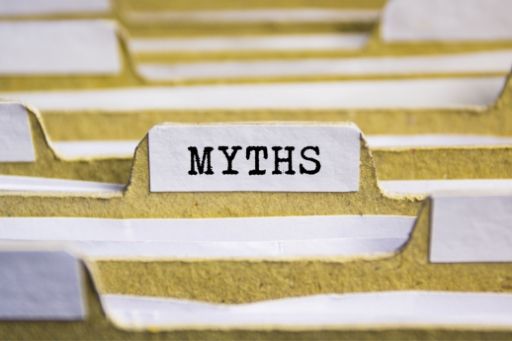Myth 1. You don’t need to think about mortgages until you’ve found your dream property.
Sure, you won’t need to actually apply for a mortgage until you’ve had an offer on a property accepted. But you certainly need to have scoped out mortgages before then, to check what you can afford.
Different lenders will offer different amounts, but a good way of getting an accurate idea of your budget is to apply for a mortgage ‘agreement in principle’ (AIP). This is a statement from a lender that they would, in principle, lend you a certain amount of money.
Myth 2. You always need a deposit to buy a property
It’s true that you’d normally need a deposit of at least 5% to buy a property. But a few lenders have recently launched 100% mortgages, where you take out a loan for the entire cost of the property.
There aren’t many 100% mortgages available, though, and they all currently require a parent or close family member to put money aside to guarantee the loan or let the lender secure a charge over their own home.
They also carry a serious risk of negative equity, which is when your property’s value falls and you owe more on your mortgage than your home is worth.
Myth 3. Your parents need spare cash if they want to help
Giving you a deposit or helping with a 100% mortgage aren’t the only ways your parents can help you buy a home.
If they’re homeowners, your parents could act as guarantors on your mortgage, meaning they would have to cover any shortfall if your property was repossessed and sold by the lender.
Your parents would have to secure a charge against their own home to do this, but it might boost your chances of being accepted by a mortgage lender.
Myth 4. You’ll be able to get a mortgage if your rent costs more than a mortgage would
Mortgage repayments may be cheaper than your monthly rent – but that doesn’t necessarily mean you’ll get accepted by a lender.
Before deciding whether to give you a mortgage, a lender will assess your income and outgoings to make sure you can afford the monthly repayments both now and if rates were to rise.
Myth 5. Can’t borrow enough? You’ll need a bigger deposit
Saving a big enough deposit can feel like an obstacle to buying your first home. But there are government schemes to help first-time buyers onto the property ladder.
With a Help to Buy equity loan you can borrow between 15% and 40% from the government towards the cost of a new-build home, depending on where you live.
Alternatively, with shared ownership you can buy a share of a property and pay rent on the rest. This means you can put in a smaller deposit than if you were buying an entire property.
Myth 6. You can’t get a mortgage if you have a low credit score
Getting a mortgage can be difficult if you’ve got a bad credit history, but it’s not impossible. Some mortgage lenders offer bad credit mortgages specifically designed for people in this situation.
However, there is a difference between a bad credit history (due to missed loan payments or a CCJ, for example) and no credit history at all, which might be the case if you’ve never taken out credit or a loan.
If you fall into the latter camp, take some time to build up your credit score rather than opting for a bad credit mortgage, as these generally come with much higher rates.
Myth 7. You can only get a mortgage from your current bank
Your bank might bombard you with adverts for its mortgage range and even offer preferential rates to you as an existing customer.
However, with more than 80 mortgage lenders in the market, it’s worth shopping around before deciding who to apply with.
Myth 8. Lowest interest rate = cheapest mortgage
The interest rate you’ll pay is just one of several factors influencing the overall cost of a mortgage. You’ll also need to look at:
Type of deal:the interest rate on a discount or tracker deal could rise at any time. On the other hand, a fixed-rate mortgage guarantees that your interest rate will stay the same for a set period of time, and could be more suitable if you want your mortgage repayments to stay the same each month during that period.
Length of deal period:in most cases a fixed, discount or tracker deal will only last for a set number of years, known as the ‘initial deal period’. Afterwards you’ll be moved onto your lender’s standard variable rate of interest, which is usually much higher – meaning you should remortgage to a different deal at that point.
Fees:many mortgages carry fees ranging from £100 to well over £1,000, making a big difference to the overall cost of the deal.
Cashback:some deals have higher interest rates but offer cash when you take out the mortgage. This can be welcome at a time when you’re spending thousands on the costs of buying a home, but do weigh up whether it’s worth it in the long run.

